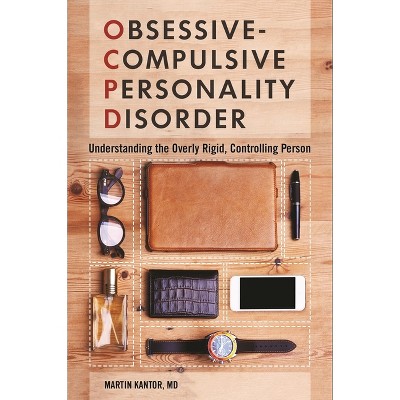Sponsored

Distancing - 2nd Edition by Martin Kantor (Hardcover)
In Stock
Sponsored
About this item
Highlights
- Kantor focuses on a misunderstood but common condition that brings severe and pervasive anxiety about social contacts and relationships.
- About the Author: MARTIN KANTOR is a psychiatrist in private practice in Boston and New York City.
- 296 Pages
- Psychology, Psychopathology
Description
About the Book
Kantor focuses on a misunderstood but common condition that brings severe and pervasive anxiety about social contacts and relationships. He offers psychotherapists a specific method for helping avoidants overcome their fear of closeness and commitments, and offers a guide for avoidants themselves to use for developing lasting, intimate, anxiety-free relationships.
Fear of intimacy and commitment keeps avoidants from forming close, meaningful relationships. Types of avoidants can include confirmed bachelors, femme fatales, and people who form what appear to be solid relationships only to tire of them and leave with little warning, often devastating their partners/victims. Kantor takes us through the history of this disorder, and into clinical treatment rooms, to see and hear how avoidants think, feel, and recover. He offers psychotherapists a specific method for helping avoidants overcome their fear of closeness and commitments, and offers a guide for avoidants themselves to use for developing lasting, intimate, anxiety-free relationships.
The avoidance reduction techniques presented in this book recognize that avoidants not only fear criticism and humiliation, but also fear being flooded by their feelings and being depleted if they express them. Acceptance is feared as much as rejection, because avoidants fear compromising their identity and losing personal freedom. Kantor describes the different therapeutic emphasis required for the four types of avoidants, including those who are withdrawn due to shyness and social phobia, such as people who intensely fear public speaking; those who relate easily, widely, and well, but cannot sustain relationships due to fear of closeness; those whose restlessness causes them to leave steady relationships, often without warning; and those who grow dependent on--and merge with--a single lover or family member and avoid relating to anyone else.
Book Synopsis
Kantor focuses on a misunderstood but common condition that brings severe and pervasive anxiety about social contacts and relationships. He offers psychotherapists a specific method for helping avoidants overcome their fear of closeness and commitments, and offers a guide for avoidants themselves to use for developing lasting, intimate, anxiety-free relationships.
Fear of intimacy and commitment keeps avoidants from forming close, meaningful relationships. Types of avoidants can include confirmed bachelors, femme fatales, and people who form what appear to be solid relationships only to tire of them and leave with little warning, often devastating their partners/victims. Kantor takes us through the history of this disorder, and into clinical treatment rooms, to see and hear how avoidants think, feel, and recover. He offers psychotherapists a specific method for helping avoidants overcome their fear of closeness and commitments, and offers a guide for avoidants themselves to use for developing lasting, intimate, anxiety-free relationships. The avoidance reduction techniques presented in this book recognize that avoidants not only fear criticism and humiliation, but also fear being flooded by their feelings and being depleted if they express them. Acceptance is feared as much as rejection, because avoidants fear compromising their identity and losing personal freedom. Kantor describes the different therapeutic emphasis required for the four types of avoidants, including those who are withdrawn due to shyness and social phobia, such as people who intensely fear public speaking; those who relate easily, widely, and well, but cannot sustain relationships due to fear of closeness; those whose restlessness causes them to leave steady relationships, often without warning; and those who grow dependent on--and merge with--a single lover or family member and avoid relating to anyone else.Review Quotes
"Once again Dr. Kantor demonstrates an uncanny ability to transform his extensive expertise into language that both the layperson and mental health professional will devour and put to immediate use....This book is nothing short of brilliant. It is a must-read for anyone who is interested in human interaction."-Raeleen D'Agostino Mautner Educational Psychologist/Researcher, author Living the Sweet Life
?Recommended. Most useful to practitioners, psychologists, psychiatrists, and general readers interested in this relatively neglected personality disorder.?-Choice
"Recommended. Most useful to practitioners, psychologists, psychiatrists, and general readers interested in this relatively neglected personality disorder."-Choice
About the Author
MARTIN KANTOR is a psychiatrist in private practice in Boston and New York City. Dr. Kantor has served as Assistant Clinical Professor of Psychiatry at Mount Sinai Medical School and at the University of Medicine and Dentistry of New Jersey, New Jersey Medical School. Dr. Kantor has been active with residency training programs at hospitals including Massachusetts General and Beth Israel in New York. He is the author of 11 other books, including Passive Aggression (Praeger, 2002) and Homophobia (Praeger, 1998).Shipping details
Return details
Frequently bought together





Trending Non-Fiction












